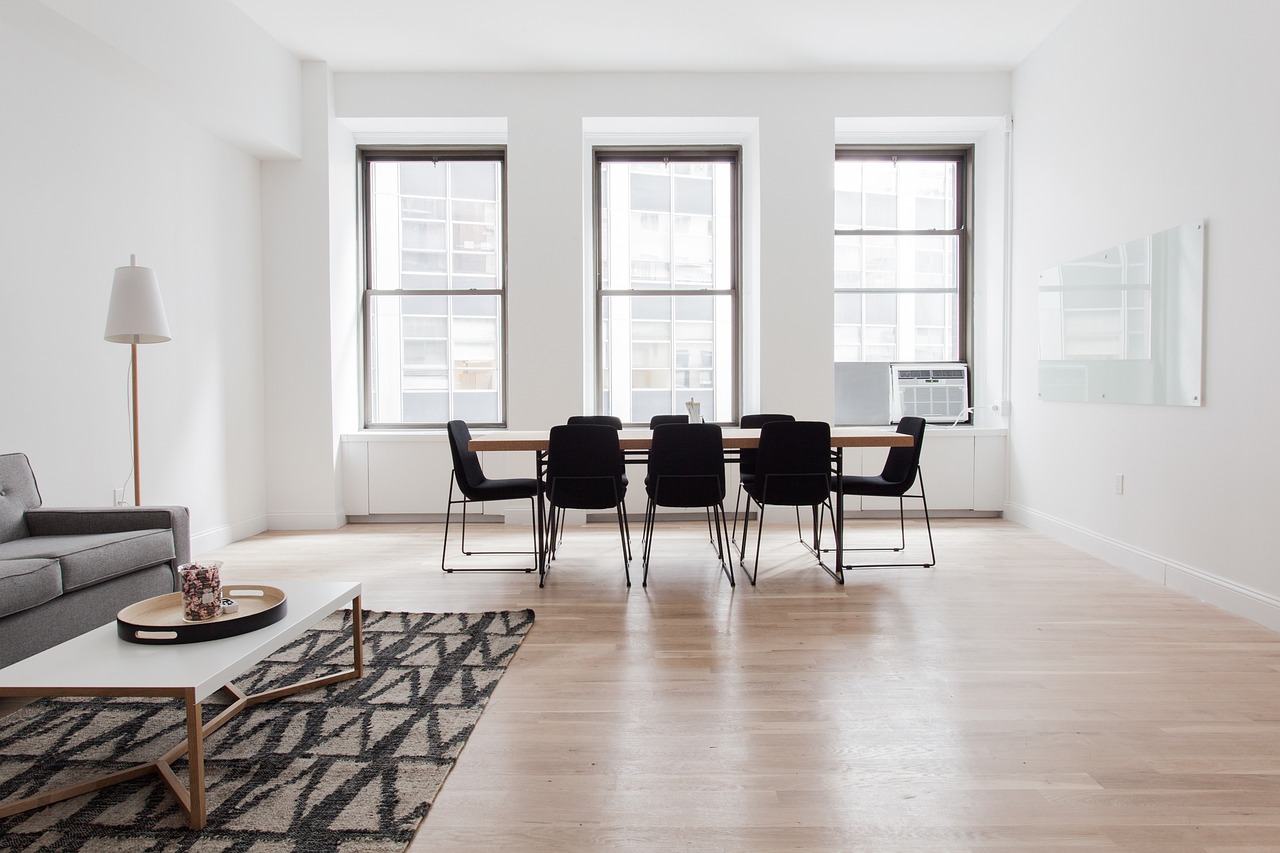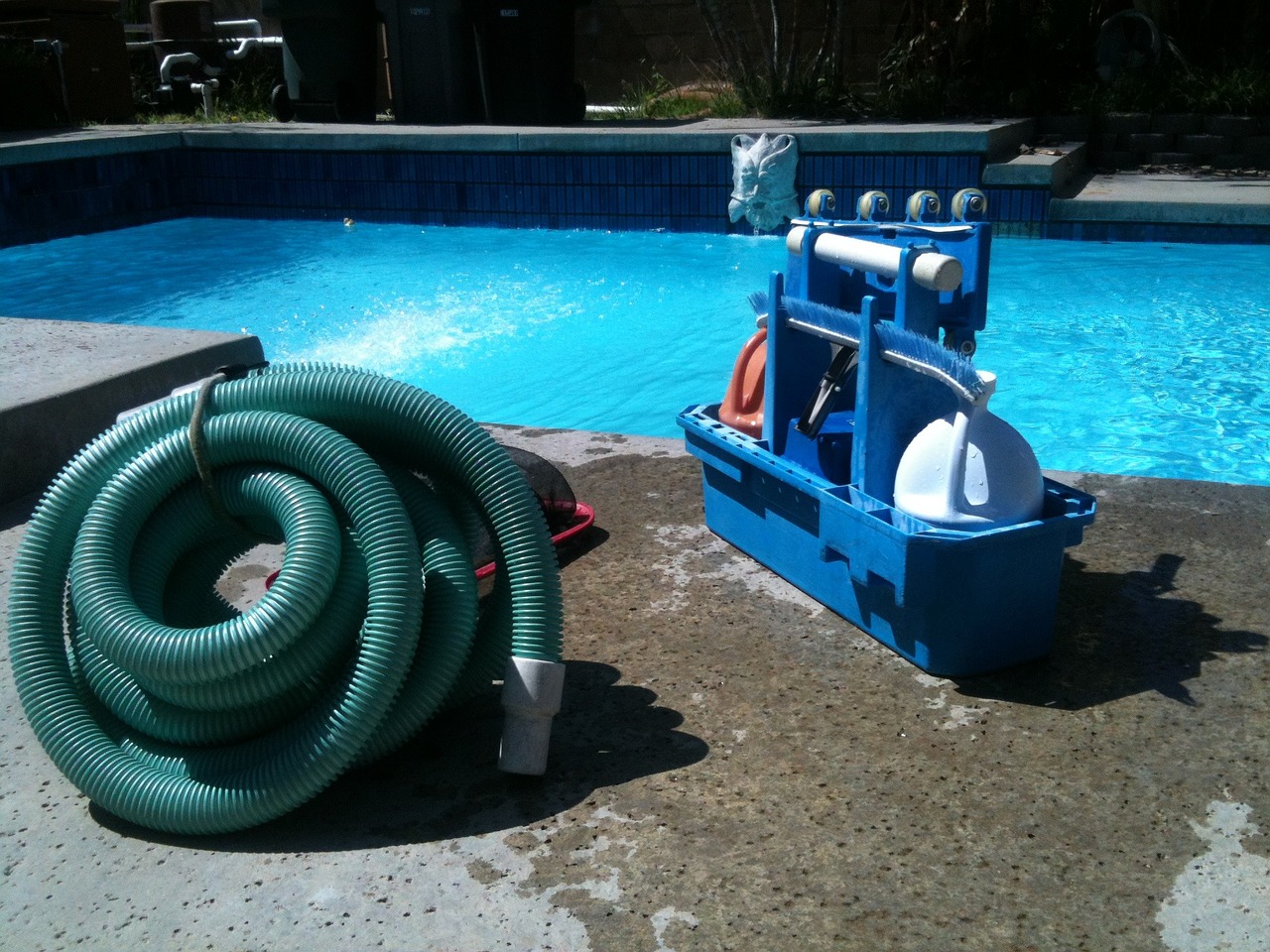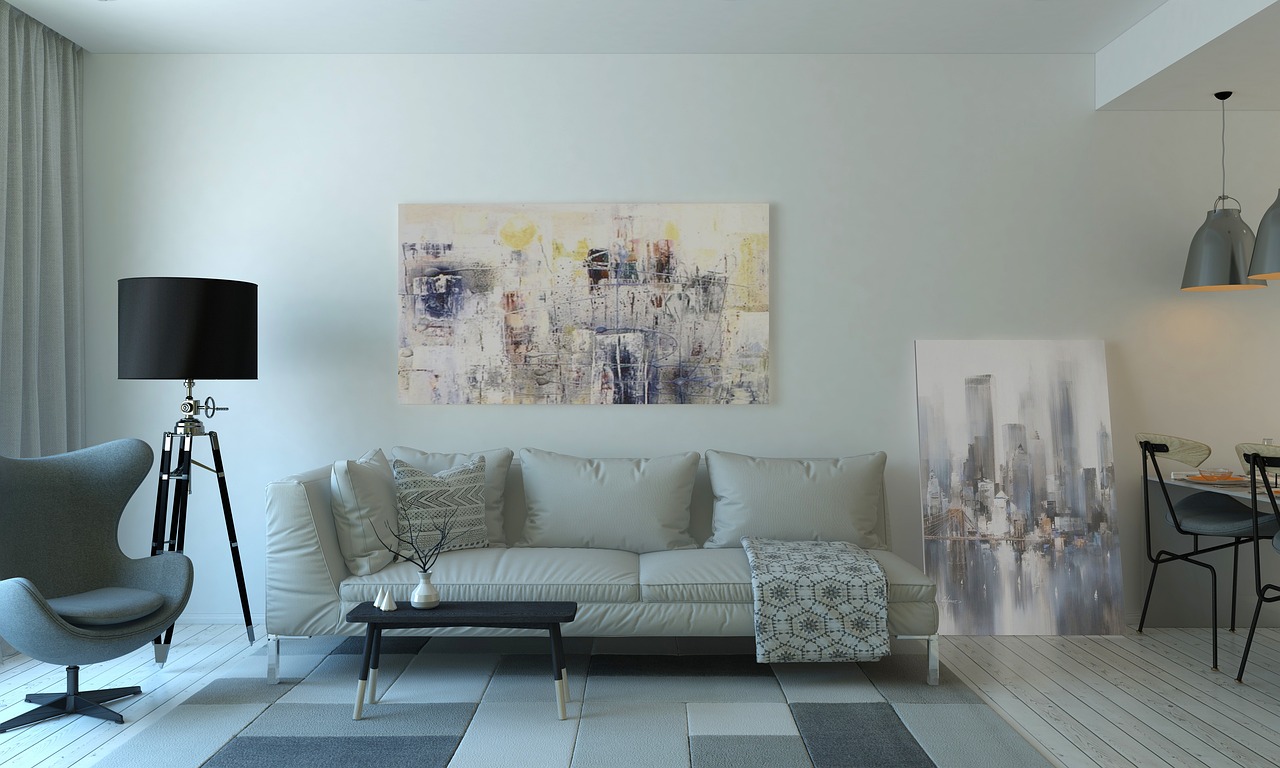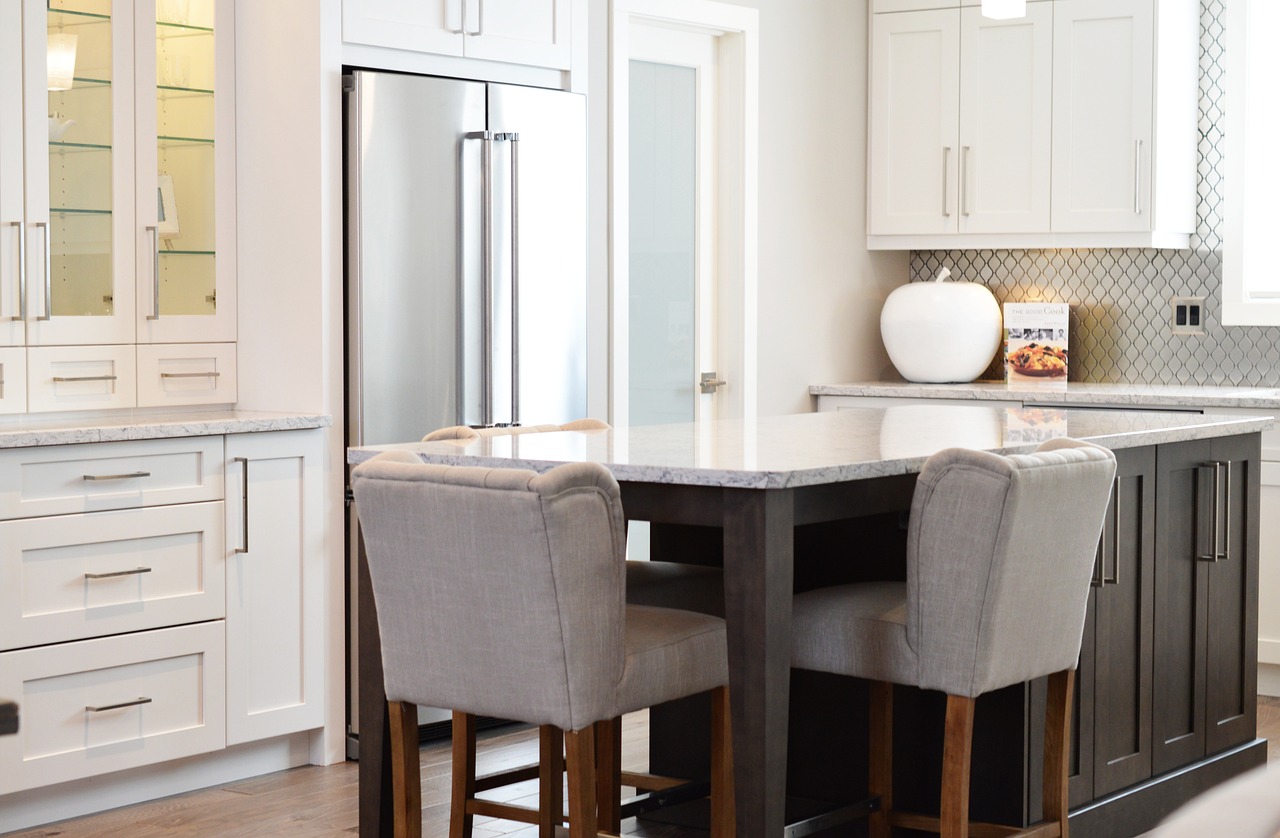10 Ways to Secure Your Home
This article explores effective strategies to enhance home security, ensuring peace of mind for homeowners. Discover practical tips and innovative solutions to safeguard your property against potential threats.
A reliable security system acts as a deterrent to intruders. With the advancement of technology, you now have a plethora of options to choose from. From traditional alarm systems that sound when a door or window is breached to modern monitored systems that alert a professional service, the choices are vast. Imagine the peace of mind knowing that professionals are watching over your home 24/7. Some systems even offer mobile apps, allowing you to monitor your home from anywhere. Consider whether a monitored system, which has a monthly fee but provides immediate assistance, or an unmonitored system, which is more budget-friendly but relies on you to respond, is the best fit for your lifestyle.
When it comes to securing your home, upgrading to high-quality, deadbolt locks can significantly enhance your safety. Think of your door locks as the first line of defense against unwanted guests. Not all locks are created equal, and investing in quality locks can make a world of difference. You might want to consider smart locks that allow keyless entry and offer additional security features, such as temporary access codes for guests. Choosing the right lock is crucial, so take the time to research options that best suit your entry points and lifestyle.
Strategically placed outdoor lighting can be a game-changer when it comes to deterring criminal activity. Picture this: a well-lit home is less appealing to a burglar, who prefers to operate under the cover of darkness. Installing motion-sensor lights around your property can illuminate any suspicious activity, making intruders think twice. Consider using LED lights for their energy efficiency and longevity. Place them in key areas such as walkways, entrances, and driveways to create a well-lit perimeter that enhances your home's security.
Windows are often vulnerable entry points for burglars. To fortify these potential weak spots, consider using a combination of locks, sensors, and even reinforced glass options. A simple yet effective method is to install window locks that are difficult to manipulate. Additionally, using window sensors that alert you when a window is opened can provide an extra layer of security. For those looking for maximum protection, consider upgrading to shatter-resistant glass, which can withstand a significant amount of force, making it much harder for intruders to gain entry.
A well-maintained landscape can enhance home security in ways you might not expect. Overgrown bushes and trees can provide perfect hiding spots for intruders, making it easier for them to approach your home unnoticed. Regularly trimming shrubs and trees can improve visibility around your property, making it more challenging for potential burglars to plan their approach. Think of your yard as an extension of your home’s security system; a tidy landscape not only looks appealing but also acts as a deterrent to criminal activity.
Smart doorbells with built-in cameras allow you to monitor who approaches your home, adding another layer of security. Imagine being able to see who’s at your door without even getting up from the couch! These devices often come equipped with features like two-way audio, allowing you to communicate with visitors remotely. They can also send alerts to your phone when motion is detected, making it easier to keep an eye on your property even when you’re not home. Investing in a smart doorbell is like having a personal security guard at your front door.
Building relationships with your neighbors can create a supportive community watch. When you know the people living around you, it fosters a sense of community and safety. Neighbors looking out for one another can be incredibly beneficial; they can alert you to any suspicious activity or help keep an eye on your home while you’re away. Consider organizing neighborhood gatherings or simply introducing yourself to create a network of vigilance. After all, a community that looks out for one another is a safer community.
Installing security cameras can provide valuable surveillance of your property. These devices have come a long way, with options ranging from basic models to advanced systems with night vision and cloud storage. When choosing cameras, consider their placement and the areas you want to monitor. Positioning them at key entry points can deter intruders and provide evidence if a crime occurs. Plus, many modern cameras allow you to access live feeds from your smartphone, giving you peace of mind wherever you are.
Developing good safety habits is crucial for home security. Simple practices can go a long way in keeping your home and family safe. For instance, always lock your doors and windows when you leave, even if it’s just for a short trip. Don’t share too much information on social media about your whereabouts, especially when you’re traveling. Additionally, consider using timers for your lights to give the appearance that someone is home. These small, everyday habits can significantly reduce the risk of a break-in.
Q: What is the best type of security system for my home?
A: The best security system depends on your specific needs. Consider factors like your budget, the size of your home, and whether you want professional monitoring or a DIY system.
Q: How can I secure my windows without replacing them?
A: You can enhance window security by adding locks, window sensors, and using security film to reinforce glass.
Q: Is outdoor lighting really effective in deterring crime?
A: Yes, well-lit exteriors make it harder for intruders to approach unnoticed, significantly reducing the likelihood of a break-in.

Install a Security System
When it comes to securing your home, one of the most effective measures you can take is to . Imagine having a protective shield around your home, alerting you and the authorities at the first sign of trouble. A reliable security system not only acts as a deterrent to potential intruders but also provides you with peace of mind, allowing you to sleep soundly at night. With today’s technology, there are various types of security systems available, each offering unique features tailored to meet your specific needs.
There are two main categories of security systems: monitored and unmonitored. Monitored systems are connected to a professional monitoring service that keeps an eye on your home 24/7. In case of an alarm trigger, they will immediately contact you and dispatch emergency services if necessary. On the other hand, unmonitored systems rely on loud alarms to scare off intruders, but they don’t alert authorities unless you do. Choosing between these options depends on your budget and how much security you feel you need.
Here's a quick breakdown of the features you might want to consider when selecting a security system:
| Feature | Monitored System | Unmonitored System |
|---|---|---|
| 24/7 Monitoring | Yes | No |
| Immediate Response | Yes | No |
| Cost | Higher | Lower |
| Self-Monitoring Options | Some | Yes |
Additionally, many modern security systems come equipped with smart technology that allows you to control your system remotely via your smartphone. This means you can monitor your home in real-time, receive instant notifications, and even view live camera feeds from anywhere in the world. Isn’t that amazing? Imagine being at work and getting an alert about a potential security breach. You can quickly check your cameras and take appropriate action, all from the palm of your hand!
Moreover, a security system can be integrated with other smart home devices, such as smart locks and lights, creating a comprehensive security network. This integration not only enhances your home’s safety but also makes your life more convenient. For instance, you can program your lights to turn on automatically when your security system is activated, giving the illusion that someone is home, even when you’re away.
In conclusion, installing a security system is a crucial step in fortifying your home against potential threats. With various options available, it’s essential to assess your needs and choose a system that best fits your lifestyle. Don't underestimate the power of a good security system; it’s not just an investment in technology but a significant step toward ensuring the safety of your loved ones and your belongings. So, why wait? Take action today and secure your home!
- What is the average cost of a security system? The cost can vary widely depending on the features and level of monitoring you choose, typically ranging from $200 to $1,500.
- Do I need a permit to install a security system? Some local laws require permits for security systems, especially those that are monitored. It's best to check with your local authorities.
- Can I install a security system myself? Yes, many systems are designed for easy DIY installation, though professional installation is also available.

Upgrade Door Locks
When it comes to home security, one of the most crucial aspects that often gets overlooked is the quality of your door locks. Upgrading to high-quality, deadbolt locks can significantly enhance your home’s defenses against intruders. Think of your door lock as the first line of defense; if it’s weak, it’s like leaving the front door wide open with a neon sign that says, “Welcome, burglars!”
So, what should you look for when upgrading your door locks? There are several types to consider, each with its own set of features. The most common types include:
- Single Cylinder Deadbolt: This is the most popular type, which uses a key on the outside and a thumb turn on the inside. It’s effective but can be vulnerable if there’s a window nearby.
- Double Cylinder Deadbolt: This requires a key on both sides, making it more secure against forced entry through nearby windows. However, it can be a fire hazard if you need to exit quickly.
- Smart Locks: These offer keyless entry and can be controlled via your smartphone. They often come with features like remote access and activity logs, making them a modern choice for tech-savvy homeowners.
Now, let’s talk about how to choose the best locks for your entry points. It’s not just about picking the most expensive option; you need to consider factors such as:
| Feature | Single Cylinder Deadbolt | Double Cylinder Deadbolt | Smart Lock |
|---|---|---|---|
| Security Level | Moderate | High | Varies |
| Ease of Use | Easy | Moderate | Very Easy |
| Cost | Affordable | Moderate | Higher |
When selecting locks, ensure they are made from durable materials, like solid brass or steel, which can withstand tampering. Additionally, look for locks that have been tested and certified by organizations like ANSI (American National Standards Institute) or UL (Underwriters Laboratories). These certifications indicate that the locks have met specific security standards.
Finally, remember that even the best locks won’t do much good if they’re not installed correctly. It’s wise to hire a professional locksmith to ensure that your locks are fitted securely and function properly. After all, a poorly installed lock can be just as ineffective as a cheap one! By taking the time to upgrade your door locks, you’re investing in your peace of mind and the safety of your loved ones.

Use Outdoor Lighting
When it comes to securing your home, outdoor lighting is often an overlooked yet incredibly effective strategy. Imagine this: it’s a dark night, and suddenly, a well-lit yard catches the eye of a potential intruder. The bright lights not only expose their presence but also create an atmosphere that screams, “This house is protected!” By installing outdoor lighting, you can significantly reduce the chances of a break-in while enhancing the overall aesthetics of your property.
There are various types of outdoor lighting options to consider, each with its own benefits. For instance, motion-sensor lights are fantastic for deterring intruders because they activate when someone approaches, startling any unwanted visitors. Furthermore, floodlights can illuminate large areas, making it difficult for anyone to hide in the shadows. You might also want to consider pathway lights that not only guide your guests safely to your door but also enhance visibility around your property.
But don’t just stop at installing lights; think about their placement. You want to ensure that you’re lighting up the most vulnerable areas of your home. Here are some key spots to focus on:
- Entry Points: Front doors, back doors, and garage entrances should be well-lit to discourage any break-ins.
- Windows: Ensure that windows, especially those on the ground floor, are illuminated.
- Dark Corners: Any hidden or shaded areas around your property can serve as hiding spots for intruders.
Additionally, consider using smart lighting systems that can be controlled remotely. Imagine being on vacation and having the ability to turn your lights on and off from your smartphone. This not only gives the impression that someone is home, but it also adds an extra layer of security. You can set timers or even sync your lights with your daily routines to make it look like you’re always around.
In summary, outdoor lighting is a simple yet powerful tool in your home security arsenal. It not only enhances safety but also adds charm to your property. So, why not take a moment to evaluate your outdoor lighting? You might just find that a few well-placed lights can make all the difference in keeping your home safe and sound.

Secure Windows
When it comes to home security, windows are often the Achilles' heel. They can be an easy target for intruders looking for a quick way in. But don’t fret! There are numerous ways to bolster your window security and keep your home safe. First off, consider installing high-quality locks on all your windows. Standard locks can be easily compromised, but upgraded locks provide a much stronger defense. You might want to look into options like window pin locks or keyed locks that offer an extra layer of protection.
Another effective method is to use window sensors. These devices alert you when a window is opened or tampered with, giving you peace of mind, especially when you’re away from home. Some systems can even send notifications directly to your smartphone, allowing you to take immediate action if needed. Additionally, you might want to consider installing reinforced glass or window film. Reinforced glass is designed to withstand significant impact, making it much harder for a burglar to break in.
But security doesn’t stop at locks and sensors. Think about the placement of your windows. If you have large windows that are easily visible from the street, they could be inviting trouble. You can enhance your security by adding privacy screens or shutters that obscure the view into your home. Not only do they add a layer of privacy, but they also make it harder for intruders to see what valuables you have inside.
Moreover, don’t underestimate the importance of maintaining your windows. Regularly check for any signs of wear and tear, such as cracked frames or broken locks. Keeping your windows in good condition not only enhances their security but also improves the overall aesthetic of your home. After all, a well-maintained home is less likely to attract unwanted attention.
Lastly, consider the role of landscaping in your window security strategy. Tall bushes or overgrown trees can provide cover for intruders. Keeping your landscape tidy and well-trimmed can eliminate these hiding spots and improve visibility around your property. A clear line of sight not only deters potential burglars but also allows your neighbors to keep an eye on your home.
In summary, securing your windows is a multifaceted approach that combines high-quality locks, modern technology, and smart landscaping. By taking these steps, you can significantly reduce the risk of a break-in and enjoy greater peace of mind in your home.
- What types of locks are best for windows? High-quality deadbolt locks, window pin locks, and keyed locks are excellent options for enhancing security.
- How do window sensors work? They alert you when a window is opened or tampered with, often sending notifications to your smartphone.
- Can landscaping affect home security? Yes, well-maintained landscaping improves visibility and reduces hiding spots for potential intruders.

Maintain Your Landscape
When it comes to home security, many people overlook the importance of their landscape. A well-maintained yard not only enhances your home’s curb appeal but also plays a crucial role in deterring potential intruders. Imagine your home as a fortress; the landscape is the first line of defense. If your yard is overgrown with bushes and trees, it can provide excellent hiding spots for burglars, allowing them to plan their approach without being seen. Therefore, keeping your landscape tidy is essential for maintaining security.
Start by regularly trimming your bushes and hedges. Ideally, you want to keep them low and neat, especially those near windows and doors. This not only improves visibility but also makes it harder for anyone to conceal themselves. Additionally, consider planting thorny shrubs or plants around your windows. These natural deterrents can make it uncomfortable for intruders to get too close to your home.
Another aspect of landscape maintenance is the management of trees. While trees can provide shade and beauty, overhanging branches can be a double-edged sword. They might provide a place for someone to gain access to your roof or upper windows. Regularly inspect your trees and prune any branches that extend too close to your home. This simple act can significantly reduce the risk of unauthorized access.
Furthermore, think about the lighting in your landscape. Strategic placement of outdoor lights can illuminate dark areas and deter criminal activity. For instance, motion-sensor lights are a fantastic option. They can surprise anyone lurking in your yard and draw attention to their presence. Consider installing lights along pathways and near entry points to ensure that your home is well-lit during the night.
Lastly, maintaining a clean and clutter-free yard is essential. Remove any debris or items that could be used to hide or assist intruders. For example, tools, ladders, or outdoor furniture can provide a means for someone to break into your home. By keeping your landscape neat and tidy, you not only enhance your home’s beauty but also create a less inviting environment for potential threats.
To summarize, maintaining your landscape is more than just an aesthetic choice; it’s a vital component of your home security strategy. By keeping your yard well-trimmed, managing trees, installing proper lighting, and eliminating clutter, you can create a safer environment for you and your family. Remember, a little effort in your landscape can go a long way in securing your home!
- How often should I trim my bushes for security? It's best to trim your bushes at least twice a year, or more frequently if they grow quickly.
- What types of plants are best for security? Thorny plants like holly or barberry can act as natural deterrents.
- Are motion-sensor lights effective? Yes, they are very effective at startling potential intruders and alerting you to movement.
- Should I remove low-hanging branches from trees? Absolutely! Pruning low-hanging branches can prevent easy access to upper windows and roofs.

Install a Smart Doorbell
In today's world, where technology is advancing at lightning speed, installing a smart doorbell is one of the most effective ways to enhance your home security. Imagine being able to see who is at your door without even getting up from your couch! Smart doorbells come equipped with cameras that allow you to monitor visitors in real-time, providing you with peace of mind whether you're home or away. But how do you choose the right one for your needs? Let's break it down.
When selecting a smart doorbell, consider features that can significantly impact your security. For instance, look for high-definition video quality, night vision capabilities, and two-way audio communication. These features not only allow you to see and hear who is at your door but also enable you to communicate with them directly. Imagine being able to tell a delivery person where to leave your package, all while you're at work!
Additionally, many smart doorbells come with motion detection alerts. This means you’ll receive notifications on your smartphone whenever someone approaches your door, even if they don’t ring the bell. This feature can be particularly useful for keeping an eye on package deliveries or monitoring any suspicious activity around your home. You might be wondering, “What if I miss the notification?” Fear not! Most smart doorbells allow you to review recorded footage, ensuring you never miss a moment.
To give you a clearer picture, here's a quick comparison of popular smart doorbell models:
| Model | Video Quality | Night Vision | Two-Way Audio | Motion Alerts |
|---|---|---|---|---|
| Ring Video Doorbell | 1080p HD | Yes | Yes | Yes |
| Google Nest Hello | 1600p HD | Yes | Yes | Yes |
| Arlo Video Doorbell | 1536p HD | Yes | Yes | Yes |
As you can see, the options vary, and the right choice will depend on your specific needs and budget. Once you’ve selected your smart doorbell, installation is generally straightforward, with most models providing step-by-step instructions. You might even find that some brands offer professional installation services if you prefer that route.
In conclusion, a smart doorbell is not just a fancy gadget; it’s a vital addition to your home security arsenal. With its ability to provide real-time monitoring and communication, you can feel more secure knowing that you have eyes on your front door at all times. Plus, it can act as a deterrent to potential intruders who might think twice before approaching a home equipped with such technology. So, why wait? Take the leap into the future of home security and install a smart doorbell today!
- Do I need a subscription for my smart doorbell? Some models require a subscription for cloud storage and additional features, while others do not.
- Can I use my smart doorbell with existing doorbell wiring? Yes, many smart doorbells can be connected to your existing wiring, but some models are battery-operated.
- What happens if my Wi-Fi goes down? Most smart doorbells will continue to function locally, but you may lose remote access until your Wi-Fi is restored.

Get to Know Your Neighbors
Building a strong relationship with your neighbors is one of the most effective yet often overlooked strategies for enhancing home security. Think about it: when you know the people living around you, you create a network of mutual vigilance. It's like having a neighborhood watch without the formalities! Imagine being able to trust that someone will notice if a stranger lingers too long near your front porch or if your garage door is left ajar. This sense of community not only fosters friendships but also instills a sense of safety.
So, how can you get to know your neighbors? Start with simple gestures. A friendly wave or a quick chat during a morning jog can go a long way. You might even consider hosting a small get-together, like a BBQ or a coffee morning, where everyone can mingle and share stories. This creates a relaxed environment for neighbors to connect. After all, who doesn't love good food and conversation?
Moreover, understanding your neighbors' routines can be invaluable. For instance, if you know that Mr. Johnson next door leaves for work at 8 AM, and Mrs. Smith across the street usually walks her dog at 7 PM, you'll be more attuned to any unusual activity. This awareness can lead to quicker responses to suspicious behavior. You might even want to create a neighborhood contact list, so everyone knows who to call in case of an emergency. Here's a simple template you can use:
| Name | Address | Phone Number |
|---|---|---|
| John Doe | 123 Maple St. | (555) 123-4567 |
| Jane Smith | 456 Oak Ave. | (555) 987-6543 |
| Mike Johnson | 789 Pine Blvd. | (555) 555-5555 |
Additionally, consider joining or forming a neighborhood association. These groups often focus on community improvement and safety initiatives, making them a perfect platform for fostering relationships. Regular meetings can help everyone stay informed about local issues and enhance community ties. Plus, it’s a great way to brainstorm ideas for neighborhood safety measures, such as organizing a neighborhood watch program or setting up a group chat for quick alerts.
In conclusion, knowing your neighbors is not just about building friendships; it’s about creating a safer living environment for everyone. When you foster these connections, you contribute to a culture of vigilance and support. So, take that first step today! Who knows? You might just find a lifelong friend next door while securing your home at the same time.
- Why is it important to know my neighbors for home security?
Knowing your neighbors allows for a supportive community where everyone looks out for each other, enhancing overall safety. - How can I introduce myself to my neighbors?
A simple wave, a friendly smile, or an invitation to a small gathering can break the ice and start building relationships. - What should I include in a neighborhood contact list?
Names, addresses, and phone numbers are essential, along with any specific emergency contacts or notes about pets.

Use Security Cameras
When it comes to enhancing your home security, installing security cameras is one of the most effective strategies you can adopt. Think of them as your eyes on the outside world, providing you with a sense of safety and control. With the ability to monitor your property 24/7, security cameras can deter potential intruders and help you keep an eye on your loved ones. So, how do you choose the right camera for your needs?
First off, you'll want to consider the type of camera that best suits your home. There are a variety of options available, each with its own set of features. For instance, you might opt for indoor cameras that monitor the interior of your home or outdoor cameras designed to withstand the elements. Here’s a quick rundown of some popular types:
| Camera Type | Features | Best For |
|---|---|---|
| Wired Cameras | Stable connection, high-quality video | Homes with existing wiring |
| Wireless Cameras | Easy installation, flexible placement | Homes without wiring |
| Smart Cameras | Remote access, motion detection | Tech-savvy homeowners |
Once you've selected the right type of camera, think about where to place them for maximum effectiveness. Ideally, you should install cameras at all entry points: front doors, back doors, and even garages. But don’t stop there! Consider placing cameras in areas where valuables are stored, such as living rooms or home offices. Remember, the goal is to create a comprehensive security network that covers all angles.
Another crucial aspect to keep in mind is the resolution of your cameras. High-definition cameras can capture clearer images, making it easier to identify faces or license plates in the event of a break-in. Additionally, features like night vision and motion detection can significantly enhance your security setup. Night vision allows you to monitor your property even in low-light conditions, while motion detection alerts you to any unusual activity.
Don’t forget about the importance of remote access. Many modern security cameras come equipped with smartphone apps that allow you to view live feeds from anywhere. This means you can check in on your home while at work or even when you're on vacation. Imagine being able to see your kids come home from school or check for any suspicious activity without being physically present!
Lastly, remember to integrate your security cameras with other home security measures. For example, linking your cameras to a security system can provide real-time alerts and notifications. This way, if a camera detects movement, you can be immediately informed, allowing you to take action if necessary.
In summary, security cameras are a vital part of any comprehensive home security strategy. They not only act as a deterrent but also provide peace of mind by allowing you to monitor your property from anywhere. So, if you haven’t yet made the leap to install security cameras, now is the time to consider this essential investment for your home’s safety.
- What is the best type of security camera for home use? It depends on your specific needs, but a combination of indoor and outdoor cameras with high resolution and night vision capabilities is often recommended.
- Can I install security cameras myself? Yes, many security cameras are designed for easy DIY installation. However, if you prefer, you can hire a professional to ensure optimal placement and setup.
- Do security cameras require internet access? Most modern security cameras do require internet access for features like remote viewing and cloud storage, but some models can operate without it.

Practice Home Safety Habits
When it comes to securing your home, practicing good safety habits is just as important as installing the latest technology. Think of it like wearing a seatbelt; it’s a simple action that can make a world of difference in ensuring your safety. So, what are some of these habits that can help keep you and your loved ones safe? Let’s dive into a few key practices that can transform your home into a fortress against potential threats.
First and foremost, always remember to lock your doors and windows every time you leave the house or go to bed. It may sound basic, but it’s easy to forget in the hustle and bustle of daily life. Consider investing in smart locks that allow you to lock and unlock your doors remotely. This way, you can check if you left the door unlocked while you’re at work or on vacation, giving you peace of mind.
Next, make it a habit to keep your valuables out of sight. This means not leaving expensive items like laptops, tablets, or even your latest smartphone visible through windows. If a burglar can see something they want, they’re more likely to break in. Use curtains or blinds to obscure the view into your home, and consider using a safe for your most prized possessions.
Another essential practice is to be aware of your surroundings. Whether you’re coming home from a long day or just taking a stroll around the neighborhood, stay alert. If something feels off, trust your instincts. You can also enhance your safety by getting to know your neighbors. A friendly wave can go a long way in building a community that looks out for one another. You might even consider starting a neighborhood watch program, where everyone keeps an eye on each other’s homes.
Additionally, it’s important to establish a routine for checking your home’s security systems. Regularly test your alarms, cameras, and lights to ensure everything is functioning properly. Just like you would change the batteries in your smoke detectors, make it a point to check your security devices. You wouldn’t want to find out during a crisis that your system wasn’t working!
Also, consider creating a home inventory. This can be a simple list or a more detailed video inventory of your belongings, including serial numbers and photographs. In the unfortunate event of a break-in, this documentation can help police track down stolen items and assist with insurance claims. It’s a proactive step that can save you a lot of hassle down the line.
Lastly, don’t underestimate the power of lighting. Keeping your home well-lit, both inside and out, can deter potential intruders. Use timers for your lights when you’re away, giving the impression that someone is home. You can even invest in motion-sensor lights that activate when someone approaches your property. This not only scares off would-be burglars but also helps you navigate your yard safely at night.
By incorporating these home safety habits into your daily routine, you’re not just protecting your belongings; you’re also creating a secure environment for your family. Remember, safety is a lifestyle, not just a one-time setup. Stay vigilant, stay proactive, and your home will be a safe haven for all who enter.
- What should I do if I lose my house keys?
Change your locks immediately to ensure your home remains secure. - Are security cameras worth the investment?
Absolutely! They provide valuable evidence in case of a break-in and can deter criminals. - How can I make my home less appealing to burglars?
Keep your landscaping trimmed, use outdoor lighting, and secure all entry points. - What are some signs that my home may be at risk?
Unusual activity around your property, strangers loitering, or tampered locks are all red flags.
Frequently Asked Questions
- What types of security systems are available for home use?
There are various types of security systems you can choose from, including monitored systems that alert a security company when a breach occurs and unmonitored systems that simply sound an alarm. Some systems also offer smart features, allowing you to monitor your home remotely via smartphone apps.
- How can I upgrade my door locks effectively?
Upgrading to high-quality deadbolt locks is a great start. Look for locks that have a Grade 1 rating, which means they're the most secure. Additionally, consider adding smart locks that allow you to control access via your smartphone, giving you peace of mind even when you're away.
- What outdoor lighting options are best for security?
Motion-activated lights are highly effective, as they only turn on when someone approaches, startling potential intruders. Solar-powered lights are also a great eco-friendly option that can illuminate pathways and entry points without the need for electrical wiring.
- How can I secure my windows against break-ins?
Securing windows can involve installing locks, using window sensors that trigger alarms, and even applying window film to make glass more difficult to break. Reinforced glass options can also provide an added layer of protection.
- Why is maintaining my landscape important for home security?
A well-kept landscape improves visibility around your home, reducing hiding spots for intruders. Regularly trimming bushes and trees can deter criminal activity by making it easier for neighbors to spot suspicious behavior.
- What are the benefits of installing a smart doorbell?
Smart doorbells come equipped with cameras that allow you to see who is at your door from anywhere. They often include features like two-way audio, motion detection, and cloud storage for recorded footage, enhancing your home security significantly.
- How can getting to know my neighbors improve security?
Building relationships with your neighbors can create a sense of community and encourage everyone to look out for one another. A supportive neighborhood watch can deter crime as people are more likely to report suspicious activities when they feel connected.
- What types of security cameras should I consider?
There are many options, including indoor cameras for monitoring inside your home and outdoor cameras that withstand weather conditions. Look for features like night vision, motion detection, and cloud storage for recordings to enhance your security setup.
- What are some good home safety habits to adopt?
Practicing simple habits can greatly enhance your home security. Always lock your doors and windows, never leave spare keys outside, and be cautious about sharing your travel plans on social media. These small changes make a big difference in keeping your home safe.



















